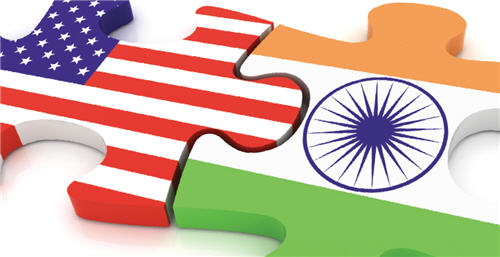
President Barack Obama must have left India an extremely satisfied man. When he arrived, the civilian nuclear deal announced by George Bush and the gushing warmth of Bill Clinton set high water marks for him to surpass. He exceeded expectations and won Indians over with his cool and cerebral approach to issues and his soaring oratory. Over a thousand elected members of both houses of India’s Parliament heard him with rapt attention, and the many interruptions of handclapping told him and the world that they approved of everything he said. Both when he lauded India’s democracy and its many achievements, as well as when he reproached India for not speaking out often enough and loudly enough when democracy was subverted and people were oppressed. He made a pointed reference to Burma, where India’s realpolitik, given China’s generous support to the military government, prompts a competing support to that odious regime. He didn’t have to name other instances such as Darfur where India’s silence signals acquiescence. He also left little doubt about what he thought of China’s manipulation of the Yuan to support its exports. There was little doubt that he expected India to play its role in the G-20.
The speech itself was a masterful display of the power of President Obama’s eloquence. He enthralled his audience like a virtuoso conductor and raised his music to a brilliant crescendo by saying that India’s rise and its conduct makes its place on the international high table with a permanent membership to the UN Security Council inevitable and that the USA supports it. The MP’s loved it, the media has now gone into raptures over it, and the speaking people of India have welcomed it. It is another matter that the reform of the UN Security Council may take a very long time to happen. China will almost certainly stall by simply saying that it does not want Japan to become a member. But right now India is not thinking about such hurdles. It is overjoyed that the USA supports its entry and that this support marks another major turning point in its attitude towards India.
During his visit, Obama made other immediately significant announcements. Among them was the removal of many defense, atomic, and space related entities from the sanctioned list. He also promised to eliminate many of the intrusive requirements that make US export of defense equipment to India almost impossible. Obama made this point by stating that he now equated India’s relations with those of the USA’s closest allies. This has not been fully digested as yet. Whether India would like to become what Britain and Israel are is debatable. Most Indian observers are not even sure whether they like the term “partnership,” let alone “alliance,” to describe India’s new relationship with the USA.
The changing Indo-US equation is now more than a decade old. Visiting the US after the nuclear tests of 1999, then-Prime Minister Atal Behari Vajpayee described India as a natural American ally in a bid to ingratiate India with the USA. Things have moved on since then.
The continued rise of China, India’s rapid growth during the past decade, and the American financial system’s near death experience has irrevocably changed hefts and clouts in the global system. After 9/11, Pakistan has once again become integral to the USA’s pursuit of its strategic interests. It needs Pakistan as an ally in its war with Al Qaeda and the Islamic terrorists ensconced in the almost impenetrable tribal badlands of Afghanistan and Pakistan. It is apparent to all that while one Pakistani arm fights with America another supports its enemies. Pakistan’s strategic geography makes it impossible for the USA to fight without Pakistan on its side.
Despite understanding the USA’s compulsion, India nevertheless expected an American condemnation of what it perceives as Pakistan’s support to terrorism on Indian soil. Obama obliged by terming the existence of terrorist camps and havens in Pakistan as unacceptable. This too has largely satisfied India—at least until the next terrorist attack. The proof of the pudding will come when the next attack takes place and India is forced to respond, militarily or otherwise.
And finally, India heard out with satisfaction the reiteration of the USA’s resolve to whittle down its trade deficit and to make the international trading system truly competitive without the distorting effects of barriers, subsidies and manipulated currency rates. Who he had in mind was obvious and India was happy about this too.
President Obama left India with an indelible imprint of his personal charm, sincerity, high idealism and sharp intellect. He wowed India as few visiting statesman have done. In the next few weeks we will see a stream of leaders coming to New Delhi, including the Russian and French Presidents and the Chinese Prime Minister. The new British Prime Minister’s first port of call after taking office was New Delhi, and the outgoing Brazilian and the South African Presidents came just a little before that. India is basking in this newfound adulation. Without doubt the lasting bouquet will be that of Barack Obama.
MG This article is part of the Atlantic Council web forum "Obama’s First Tour of India."
Image: usa-india-puzzle_0.jpg
